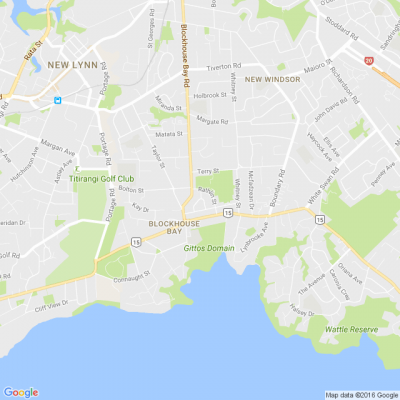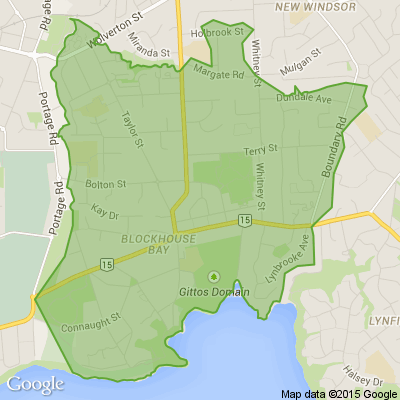After a year in Australia: 'Honestly, this place is cheaper than NZ'
When I left NZ, it seemed I was part of an exodus. Little did I know that exodus was only going to intensify.
It seems every other week, another friend or colleague announces their move across the Tasman. And, look, the lure of Australia is undeniable – better pay, improved working conditions, and yes, the sunshine.
Watch Aziz's price comparison in full on TVNZ+
A year on, we now know more than 85,000 New Zealanders have flocked across the ditch. It seems while the ibis might be notorious for scavenging, the kiwi is now the one crossing the ditch in search of better pickings.
Here’s why.
=========
Let’s kick things off easy with housing. According to CoreLogic’s latest figures, if you’re looking to buy a home, Australia seems to have the edge (unless you’re planning to buy in Sydney, then good luck).
The median house price in Australia is, in NZ dollars, just over $880,000, compared to New Zealand’s $931,000, Even in the pricey cities of Sydney and Auckland, the numbers are comparable, with homes costing nearly $1.3 million.
If you’re renting like me, you’re going to be paying more though, especially if you’re living in Sydney. The average national Aussie rent is around $695 per week, while TradeMe says it’s slightly cheaper in New Zealand at $610.
But if you’re in Auckland, prepare to shell out about $660 weekly compared to Sydney’s eye-watering $820.
Utilities and Groceries
==================
When it comes to utilities, shock-horror, Australians again come out on top. Canstar Blue shows the average monthly electricity bill is $122, far cheaper than the $196 Kiwis pay. And in Australia, we pay our power quarterly.
Personally, because I live on my own here, my bill roughly hits $200-$250 every three months.
When it comes to groceries, prices are on the rise in Australia, with the latest figures showing they are actually the most expensive we’ve seen in a while. The kicker is we are spoiled for choice when it comes to our supermarkets.
The Australian Bureau of Statistics says the average Australian household spends about $208 a week on food, while New Zealanders are hit with a whopping $300 weekly bill (Source: Stats NZ).
It appears more competition and scrutiny in the Aussie market drive prices down, giving shoppers better deals.
Salaries: Show me the money
========================
The average weekly wage in Australia is around $2,094, adding up to nearly $109,000 annually (Source: Australian Bureau of Statistics).
Compare that to New Zealand’s $1,593 weekly wage, or about $80,000 a year (Source: Stats NZ), and the difference is stark.
This earning potential is a huge draw for Kiwis, especially professionals like nurses and police officers, as highlighted in my Great Brain Drain series. 1News revealed 322 New Zealand officers applied to work with Queensland Police in the last year, and our nursing sector has lost nearly 24,000 registered nurses to Australia. Those are only the ones we know of who have registered under the Trans-Tasman Mutual Agreement.
With a salary increase of almost 30% in some cases, the promise of higher pay and better working conditions is hard to resist.
A mixed bag of inflation and employment
=================================
It is no secret Australia is also grappling with its own cost-of-living crisis, but there's a silver lining. Recent figures show a robust job market with low unemployment in June 2024 (Source: ABS).
Meanwhile, in New Zealand, inflation has dipped slightly, leading to a cut in home loan rates, but unemployment remains a concern as many Kiwis seek better opportunities abroad.
The overall picture
===============
Is the move worth it? For many, it seems the answer is a resounding yes.
But Australia does have its own cost-of-living challenges. People are struggling to pay their rent and keep their fridges stocked.
As a Kiwi who has just come here, I can say hand on heart the cost of living in New Zealand is just as bad as Australia, made worse by our lower salaries.
With that said, while it’s crucial to weigh individual circumstances and long-term goals, the grass does seem greener on the other side.
But I’m still holding out hope for New Zealand. Addressing these issues at home could help retain our talent and make our own patch of grass just as green.
After all, there’s no place quite like Aotearoa.
Sources:
=======t
• Australian Median House Price: CoreLogic Australia
• Sydney Median House Price: CoreLogic Australia
• NZ Median House Price: CoreLogic NZ
• Auckland Median House Price: CoreLogic NZ
• Australia Rent: CoreLogic Australia
• NZ Rent: TradeMe
• Australia Power: Canstar Blue
• NZ Power: Canstar Blue
• Australia Groceries: Finder, Australian Bureau of Statistics
• NZ Groceries: Stats NZ, Wise Move
• Australia Salary: Australian Bureau of Statistics
• NZ Salary: Stats NZ
==========================================
www.1news.co.nz...
===========================================
Best way to use leftovers?
I'm sure you've got some excess ham at home or cold roast potatoes.
What are some of your favourite ways to use leftover food from Christmas day? Share below.

⚠️ DOGS DIE IN HOT CARS. If you love them, don't leave them. ⚠️
It's a message we share time and time again, and this year, we're calling on you to help us spread that message further.
Did you know that calls to SPCA about dogs left inside hot cars made up a whopping 11% of all welfare calls last summer? This is a completely preventable issue, and one which is causing hundreds of dogs (often loved pets) to suffer.
Here are some quick facts to share with the dog owners in your life:
👉 The temperature inside a car can heat to over 50°C in less than 15 minutes.
👉 Parking in the shade and cracking windows does little to help on a warm day. Dogs rely on panting to keep cool, which they can't do in a hot car.
👉 This puts dogs at a high risk of heatstroke - a serious condition for dogs, with a mortality rate between 39%-50%.
👉 It is an offence under the Animal Welfare Act to leave a dog in a hot vehicle if they are showing signs of heat stress. You can be fined, and prosecuted.
SPCA has created downloadable resources to help you spread the message even further. Posters, a flyer, and a social media tile can be downloaded from our website here: www.spca.nz...
We encourage you to use these - and ask your local businesses to display the posters if they can. Flyers can be kept in your car and handed out as needed.
This is a community problem, and one we cannot solve alone. Help us to prevent more tragedies this summer by sharing this post.
On behalf of the animals - thank you ❤️









 Loading…
Loading…